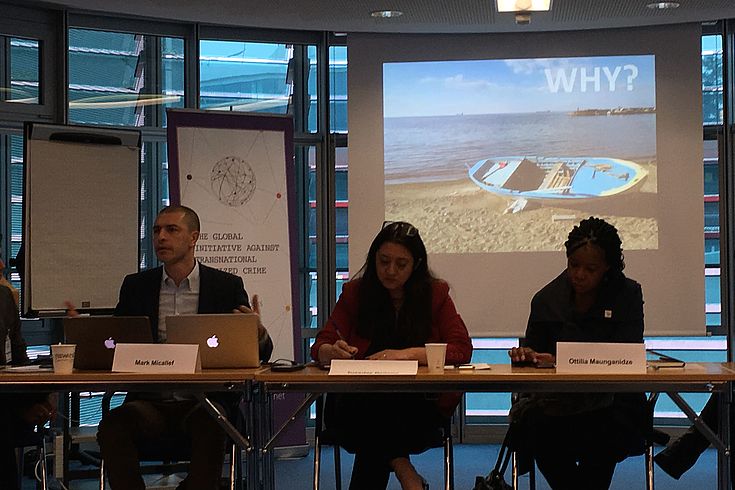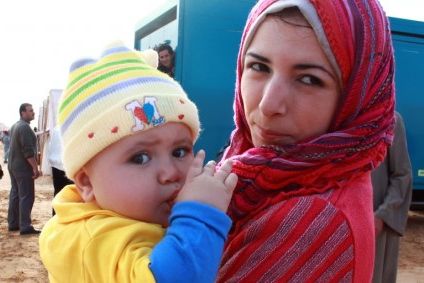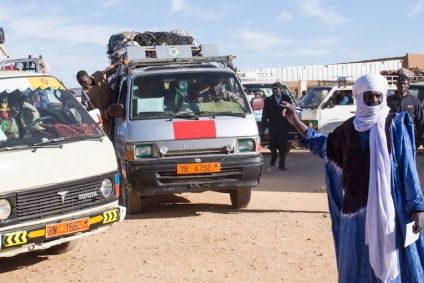Dynamic Markets – Human Smuggling from Africa to Europe
The city of Geneva, the capital of international organisations and the human rights community, had been strategically selected for the first launch of a series of new research papers on migration published by the ISS and the Global Initiative against Transnational Organised Crime this month.
The 2016 project presented at the seminar was continuing earlier research work on migration which had been published by the same team in November 2015, to much acclaim: the study “Survive and Advance: the Economics of Smuggling Migrants and Refugees into Europe”, generated with support from the Hanns Seidel Foundation as well, has since informed a new book by the authors, Tuesday Reitano and Peter Tinti. Titled “Migrant, Refugee, Smuggler, Saviour”, it recently received excellent reviews in the Economist, the Financial Times and on CNN.
The new research now presented at the Geneva seminar had set out to update the collective knowledge on illicit migration and human trafficking in Africa, in order to provide a baseline for more effective policy and programme development by the international community, regional actors and national governments.
Apart from extensive desktop research and expert interviews carried out in key countries, the 2016 empirical studies draw on conversations with smugglers themselves in Libya, Turkey, the Sahel and sub-Saharan Africa. They seek to understand who the smugglers are that contribute to some of the migration to Europe, how they operate, what drew them into the trade, and how they are responding to international efforts to end illicit migration. For Turkey, this also offered critical insights into how policy can influence dynamics on the ground.
Estimates by Europol say that about 90% of irregular migration to Europe is ‘facilitated’ by smugglers or criminal groups who are paid to provide services such as transportation, fraudulent identification, bribes for border officials and settlement services. They exert influence on not only who moves, but also how, when and where people move. They also impact the safety and security of migrants along the journey - and the long-term stability of the states through which they transit.
The Geneva launch event chaired by the ISS’ Ottilia Maunganidze saw presentations from renowned experts on the panel such as Matthew Herbert (Strategic Capacity Group), Mark Micallef (Migrant Report), Tuesday Reitano (Global Initiative), Gabriella Sanchez (University of Texas El Paso) and Peter Tinti (Global Initiative).
The seminar which was shared online via a live podcast as well identified key characteristics of contemporary migrant smuggling and shed light on how the industry is structured and has developed in response to EU policies. It also explored implications for the future of irregular migration.
The new reports published by the Institute for Security Studies, in partnership with the Global Initiative against Transnational Organized Crime, provide a unique, holistic perspective on the dynamics of illicit migration across Africa, with a particular focus on human smuggling. They will be presented at a South African launch event in Pretoria early next year, and together with a summary cover brief, they are now available on the ISS and Global Initiative websites. Find them here.



